Uncategorized
-
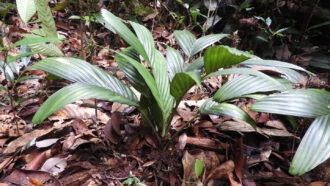 Plants
PlantsTo spy this palm’s blooms and fruits, start digging underground
Plants across 33 families are known for subterranean flowering or fruiting. But this palm is extremely rare. It does both.
-
 Earth
EarthGet ready for the 2024 total solar eclipse
A total solar eclipse will race across North America on April 8, 2024, providing a rare opportunity for both scientists and casual observers.
-
 Environment
EnvironmentBottled water hosts many thousands of nano-sized plastic bits
The finding emerges from tests of a new tool that identified smaller-than-ever tiny plastic bits in three brands of bottled water.
By Laura Allen -
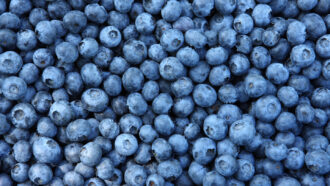 Physics
PhysicsHere’s why blueberries aren’t blue — but appear to be
Blueberries actually have dark red pigments — no blue ones — in their skin. Tiny structures in the fruits’ waxy coat are what make them seem blue.
-
 Science & Society
Science & SocietyScientists Say: Model
Models are representations of real-life systems or processes that we use to ask questions, make predictions and test our knowledge.
-
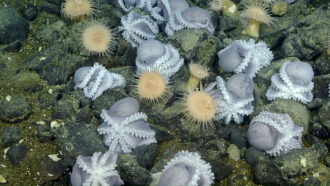 Animals
AnimalsHere’s why thousands of octopuses gather at the ‘Octopus Garden’
Underwater cameras and other instruments investigated why so many pearl octopuses gather here to mate and nest.
By Maria Temming and JoAnna Wendel -
 Life
LifeBacterial fossils exhibit earliest hints of photosynthesis
Microscopic fossils from Australia suggest that some bacteria evolved structures for oxygen-producing photosynthesis by 1.78 billion years ago.
-
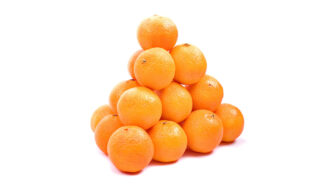 Math
MathGeometry can shape our world in unexpected but useful ways
This math, and the geometers who use it, can solve problems from how to stack oranges to designing better vaccines.
-
 Oceans
OceansAnalyze This: Climate change may worsen the spread of ocean noise
Some parts of the ocean may become five times as loud in the future.
-
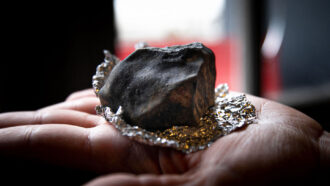 Space
SpaceLet’s learn about meteorites
Meteorites are bits of space rock that have crash-landed on Earth — or on another celestial body.
-
 Space
SpaceScientists Say: Solar Cycle
This roughly 11-year cycle in the sun’s activity can affect space weather that messes with Earthly technology.
-
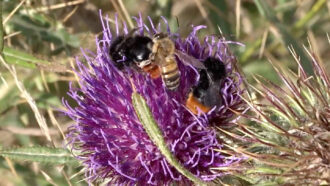 Animals
AnimalsPollen-seeking honeybees sometimes turn to theft
Observations of honeybee pollen theft from bumblebees suggest it may be a crime of convenience, based on ease of access to the prized food.